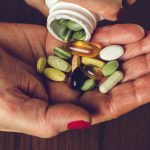Get Easy Health Digest™ in your inbox and don’t miss a thing when you subscribe today. Plus, get the free bonus report, Mother Nature’s Tips, Tricks and Remedies for Cholesterol, Blood Pressure & Blood Sugar as my way of saying welcome to the community!
8 things you didn’t know vitamin D does

You go to the doctor for your yearly check-up and say to him, “Doc, I want a pill that will make me stronger, smarter, healthier, disease-proof, age-proof, thinner and with great skin and strong bones. Got anything like that?”
In a perfect world, the doctor would say, “Yes, I do. It’s called vitamin D.”
Almost every American has low levels of vitamin D — seniors especially — and the American diet contains little natural vitamin D. Outside of diet and cod liver oil, the only other natural source of vitamin D is the sun, but most Americans are now “inside people” who get far too little sun exposure.
Click on the arrow below to see just a little bit of what your body gets with the essential nutrient we call vitamin D.
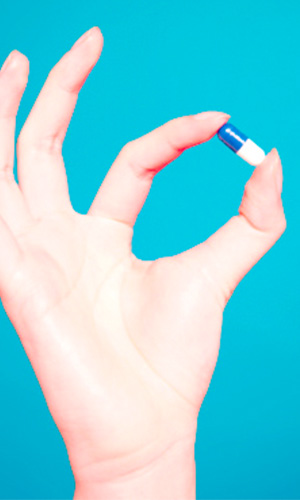
1. Vitamin D helps reduce insulin resistance
Few of us realize vitamin D’s important role in insulin secretion and glucose metabolism. Previous research has associated low blood levels of vitamin D with a higher risk of developing diabetes.
Researchers from Tufts Medical Center conducted a review and meta-analysis (they combined the statistical results) of three clinical trials comparing the impact of vitamin D supplements on diabetes risk for adults with prediabetes.
Over a three-year follow-up period, they saw that supplementing vitamin D was associated with a 15 percent decreased likelihood of developing type 2 diabetes in adults with prediabetes.
Given the fact that more than 374 million adults worldwide have prediabetes, the authors used their findings to deduce that vitamin D supplementation could delay the development of diabetes in more than ten million people.
Read: This vitamin that could turn prediabetes around
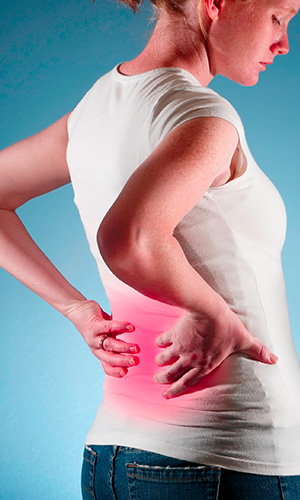
2. The vitamin that subdues back pain
If your back hurts, you’re not alone. Serious back pain is a global epidemic. The problem: You and millions of other people don’t get enough of the anti-back pain vitamin.
According to researchers at the Sunlight, Nutrition and Health Research Center, a lack of vitamin D contributes to the large number of people worldwide who suffer low back pain.
Plus, research at the University of Minnesota has shown that many people suffering back pain have barely any vitamin D circulating in their blood.
Read: The common sense rule for best vitamin benefits
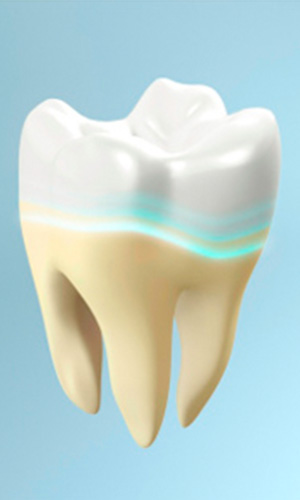
3. The vitamin that defends teeth against cavities
Eating sticky sweets can lead to tooth decay. When sugary candy adheres to a tooth, harmful bacteria enjoy a damaging feast. But a review of research on mouth health shows that vitamin D can significantly shrink your chances of suffering painful cavities in your teeth.
Research at the University of Washington showed that vitamin D was associated with an approximately 50 percent reduction in the incidence of tooth decay.
Michael Hollick, professor of medicine at the Boston University Medical Center, adds: “The findings from the University of Washington reaffirm the importance of vitamin D for dental health.” He notes that “children who are vitamin D deficient have poor and delayed teeth eruption and are prone to dental caries.”
Read: Vitamin D metabolism: It’s not a one-size-fits-all vitamin

4. The vitamin they give to intensive care patients
Researchers in South Korea have found that one particular vitamin is crucial for keeping neurosurgical patients from getting infections. Those who are deficient in this vitamin get sick with infections more often. Do you have enough?
The nutrient in question is vitamin D. Your skin can make it from the sun in summertime, but that’s not an option for some people. And it’s certainly not possible when you’re in the hospital.
The Korean researchers point out that “vitamin D deficiency in neurosurgical intensive care unit patients is an important issue… we found that vitamin D deficiency is linked to immunological status.” So, unless you get enough, your immunological status can suffer, too. That leads to more illness.
Read: The secrets behind the lost cure
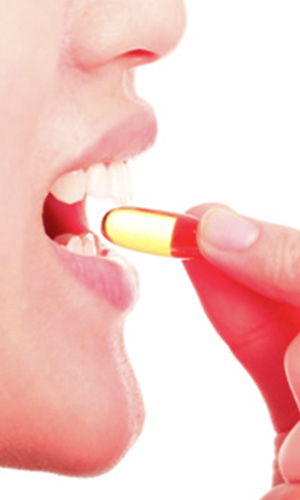
5. Vitamin D supplies more energy
Crohn’s disease, an inflammation of the digestive tract, can cause muscle weakness and fatigue while generally ruining your life. But researchers at Trinity College Dublin, Ireland, have discovered a simple vitamin that restores your energy, helps get you back on your feet and rejuvenates your zest for life.
Their study shows that three months of taking 2,000 IU of vitamin D per day can help restore muscle tone and relieve many of the discomforts caused by Crohn’s.
The people in the research who took vitamin D also enjoyed more mental energy and a higher quality of life.
Read: 6 proven ways to increase your energy after 40
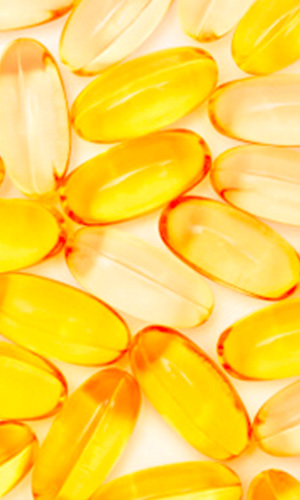
6. The vitamin that reduces fibroid risk
Fibroids, also known as uterine leiomyomata, are noncancerous tumors of the uterus. They often cause pain and bleeding in premenopausal women and are the leading cause of hysterectomy in the United States. However, researchers have learned women can lower their risk of this painful problem by more than 30 percent when they take a common vitamin.
A study at The George Washington University and the Medical University of South Carolina shows that women with enough vitamin D are 32 percent less likely to develop fibroids than women with insufficient vitamin D.
In the study, women who reported spending more than one hour outside per day also had a 40 percent decreased risk of fibroids. Although fewer black than white participants had sufficient 25-hydroxy D levels, the estimated reduction in the prevalence of fibroids was about the same for both ethnic groups.
Read: The hysterectomy method that may spread cancer

7. Without vitamin D, your brain ages faster
Two studies show that one particular vitamin is crucial to keep your brainpower from dimming as you grow older. Without this nutrient, your risk of Alzheimer’s climbs and your thinking abilities are more liable to slip.
Research in France demonstrates that consuming very little vitamin D is associated with a greater risk of developing Alzheimer’s disease. At the same time, scientists in Minneapolis have found that low vitamin D levels among older women are associated with higher odds of global cognitive impairment and a higher risk of global cognitive decline.
In the Minneapolis research, scientists found that very low levels of vitamin D (less than 10 nanograms per milliliter of blood serum) among older women were associated with higher odds of global cognitive impairment at the beginning of the study.
Read: Can Alzheimer’s dementia be reversed?
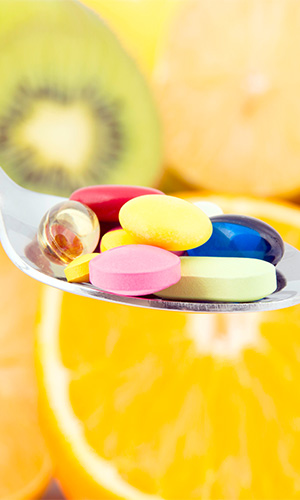
8. The vitamin that cuts cancer risk in half
When researchers in Scotland measured the vitamin blood levels of people with colon cancer, they found that one vitamin in particular reduced their risk of dying by 50 percent.
In this study, people possessing the top levels of vitamin D in their bodies had half the risk of succumbing to cancer compared to other folks in the research.
People with stage 2 cancer enjoyed the greatest benefit of vitamin D. The study showed that 75 percent of people with the most vitamin D were still living after five years. Only about 30 percent of those with the lowest levels survived that long.
The results show that vitamin D is associated with a much better chance of cancer survival, although the nature of this relationship is not clear from this study.
Read: Cut your chance of cancer in 14 days
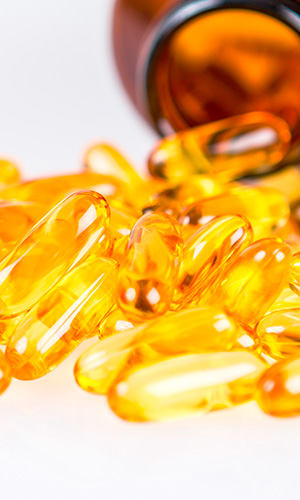
How much vitamin D is enough?
Vitamin D is almost a miracle supplement (it’s really a hormone). It is necessary for bone health, helps the body fight cancer (especially in the breast and prostate) and props up cardiovascular health. It fights the symptoms of muscular sclerosis, fights diabetes and its effects, increases insulin production to help those with type 1 diabetes, treats rheumatoid arthritis, treats psoriasis and helps ward off Alzheimer’s disease. And it does much, much more.
Most people get their vitamin D from three primary sources. Your skin makes vitamin D in response to sunlight exposure. (Although in the winter, in northern states, the sunlight is too weak to help.) Your foods can provide vitamin D if you consume oily fish. And vitamin D supplements can also supply the vitamin.
The U.S. Institute of Medicine recommends 4,000 units a day. However, a therapeutic dose of 5,000 IUs a day is widely accepted.
Make sure your vitamin D supplement is natural vitamin D3 (cholecalciferol) and not synthetic vitamin D2 (ergocalciferol).
You might also enjoy…
4 supplements that fight aging and gum disease
There are four specific supplements that you should be taking to help keep a healthy mouth. And they are supplements that can also improve the overall aging of your body. Not only that, but they also cut your risk of three different cancers tied to periodontal disease… Continue reading…












